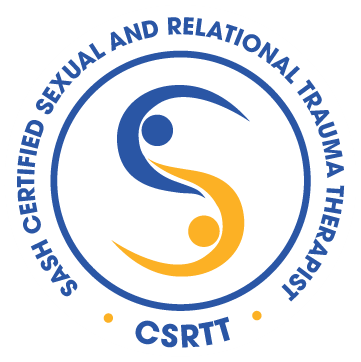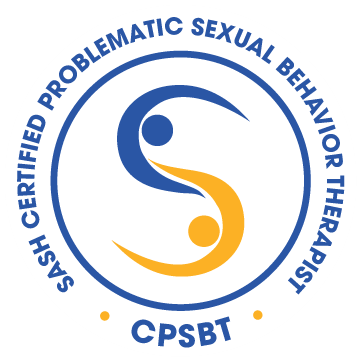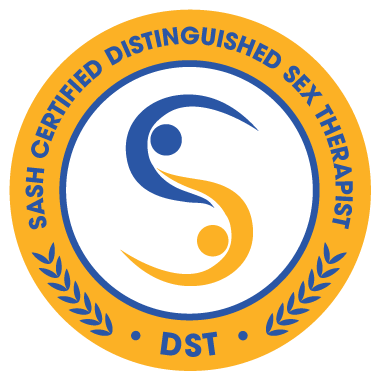Dr. O’Connell will be accepting new clients starting in September of 2025
Dr. Katherine O’Connell is a compassionate, skilled clinician who works with individuals and couples facing a wide range of challenges – including relationship distress, betrayal trauma, compulsive sexual behavior, sexual dysfunction, cancer diagnoses, and thoughts of suicide. She also has experience helping people manage symptoms related to PTSD, anxiety, and depression. With a strong background in supporting veterans and first responders, Dr. O’Connell offers care that is grounded in research while tailored to the unique person.
Dr. O’Connell believes therapy should lead to real, measurable progress – and she partners with her clients to set meaningful goals and track their outcomes over time. For long-term therapy clients with complex mental health histories or co-occurring conditions, such as attention deficit hyperactive disorder (ADHD), Dr. O’Connell can offer formal psychological assessments to help clarify diagnoses and guide therapy more effectively.
At the heart of her approach is a simple goal: to help people understand themselves more deeply, heal from what is hurting, and build a life that feels meaningful and satisfying. Dr. O’Connell’s style is collaborative, thoughtful, and grounded in the belief that therapy should be a tool for lasting change—not just temporary relief.
Couples & Sex Therapy
Dr. O’Connell approaches relationship distress and sexual dysfunction using Gottman Methods as a framework supplemented by interventions from Dialectical Behavioral Therapy (DBT) and Cognitive Processing Therapy (CPT). Specifically, assessment and interventions from Gottman Methods provide a client-friendly framework to understand most relationship dynamics. DBT interventions provide individuals skills and resources for extreme emotional dysregulation and can help explain dynamics in high-conflict couples. These techniques help the couples that sometimes think “this shouldn’t be so hard,” “we are always fighting!” or “why aren’t we as happy together as I think we could be?”
The pain of infidelity and compulsive sexual behavior often segment peoples’ lives as “before the affair” or “after my mistake.” When unchecked, these events can alter individuals’ interpretations of their relationship (“everything feels like a lie now”) and themselves (“something is broken about me”). Dr. O’Connell helps her clients achieve peace from the pain of these events resulting from acknowledging painful feelings and changing the meaning of these events using CPT. Dr. O’Connell also knows that intimacy, connection, and sexuality are vital to well-being and can be leveraged to help address individual trauma, depression, anxiety, and suicidality.
Anxiety, Depression, and Posttraumatic Stress Disorder
Dr. O’Connell uses evidence-based therapies to help clients shift unhelpful thoughts and behaviors, while also building greater self-understanding and self-acceptance. She often reminds clients that the most important stories are the ones we tell ourselves about ourselves—and during times of distress, those stories can become distorted or overly harsh. By gently challenging these patterns and exploring new perspectives, therapy becomes a place for healing and clarity. Dr. O’Connell primarily draws from Dialectical Behavioral Therapy (DBT) and Cognitive Behavioral Therapy (CBT) when working with clients experiencing anxiety, depression, and related issues like insomnia. For trauma, she uses Cognitive Processing Therapy (CPT) with adults and Trauma-Focused Cognitive Behavioral Therapy (TF-CBT) with adolescents. Originally developed for youth healing from childhood sexual abuse, TF-CBT has also been adapted to support young people facing grief, loss, and other forms of trauma.
Oncology Specialty
One in two men and one in three women will face a cancer diagnosis at some point in their lives. Beyond the physical impact, cancer often brings emotional challenges—like anxiety, depression, relationship strain, and deep questions about identity, purpose, and mortality. Dr. O’Connell trained at Fred Hutchinson Cancer Center, where she treated individuals navigating fears of recurrence, changes in sexual functioning, treatment-related pain, and ongoing complexities of survivorship. She remains passionate about supporting individuals and couples impacted by cancer, whether they are in active treatment, long-term recovery, or facing the end of life. For individuals approaching the end of life, Dr. O’Connell offers therapy focused on meaning, legacy, and peace. She uses evidence-based approaches—such as Meaning-Centered Psychotherapy and Dignity Therapy—to help clients explore their values, address anticipatory grief, and reconnect with what matters most. Her goal is to walk alongside clients through these deeply personal journeys with respect, compassion, and steadiness.
Suicidal Thoughts and Behaviors
Dr. O’Connell treats individuals who experience suicidal thoughts, including those who have lived with these feelings for much of their lives. She approaches this work with deep compassion and respect, believing that suicidal thoughts often come from intense emotional pain, a loss of connection to meaning, and a fading sense of self. Her goal is to help clients feel seen, understood, and supported as they find their way back to hope and stability.
She is trained in several evidence-based approaches to suicide prevention, including full-model Dialectical Behavioral Therapy (DBT), Brief Cognitive Behavioral Therapy for Suicide Prevention (BCBT-SP), and is certified in the Collaborative Assessment and Management of Suicidality (CAMS). In addition to her clinical work, Dr. O’Connell serves as a consultant on a Department of Defense-funded study exploring a couples-based approach to suicide prevention—reflecting her expertise in both relational therapy and military populations.










